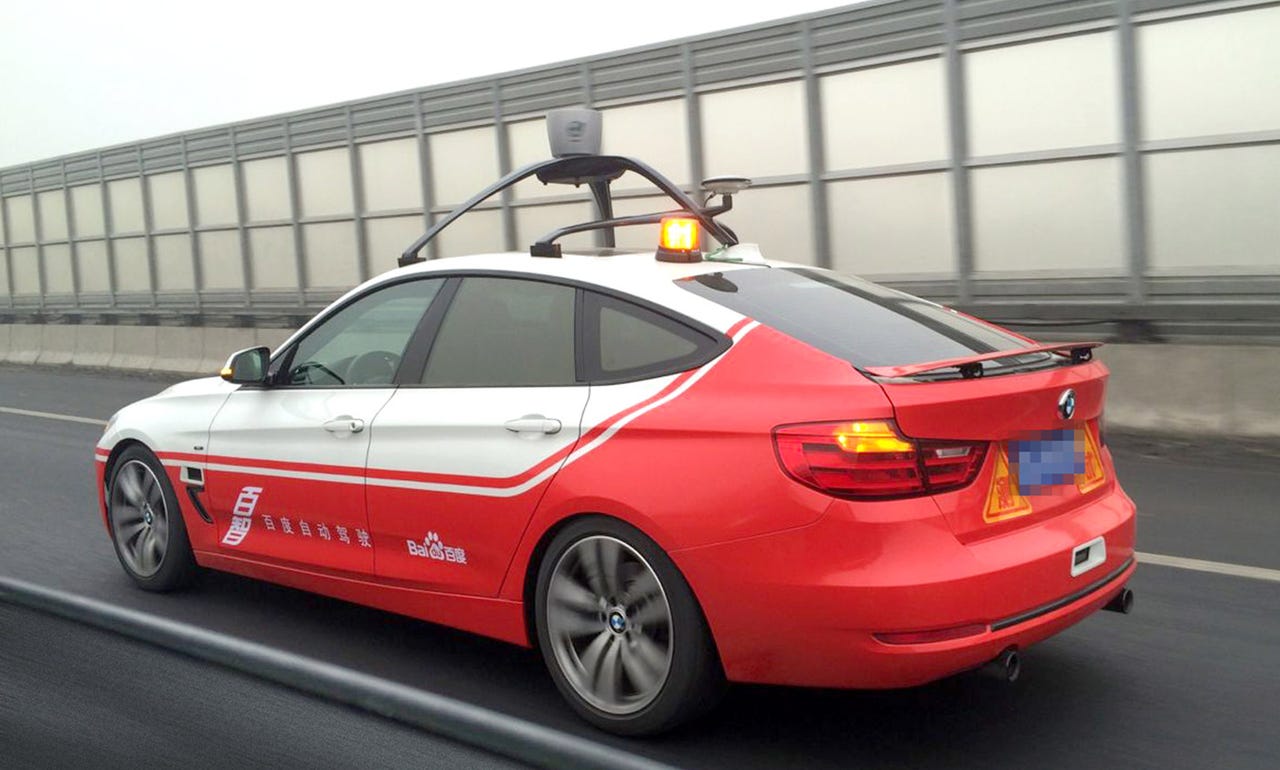Driverless car at 62mph? Baidu says that's no problem


Baidu's self-driving car is a modified BMW 3 series.
Chinese search-engine provider Baidu says it has wrapped up a round of "rigorous, fully-automated tests" with its technology in a modified BMW 3 Series.
Baidu, one of the companies that had designs on Nokia's then for-sale HERE maps, says the tests mark a milestone in China's driverless car ambitions.
According to Baidu, the tests demonstrated its technology can handle complex road conditions and accurately respond to the driving environment across a 30-kilometre test drive route.
"Fully autonomous driving under mixed road conditions is universally challenging, with complexity further heightened by Beijing's road conditions and unpredictable driver behavior," said Wang Jing, SVP of Baidu and general manager of Baidu's Autonomous Driving Business Unit.
The test took place on a stretch of road from Baidu's Beijing headquarters and around the G7 highway, Fifth Ring Road, Olympic Park and back again.
Baidu said the car peaked at 62mph (100kph) during the tests -- a speed that Google, with an emphasis on caution, has avoided for now with its cars maxing out at 25mph.
According to Baidu, its vehicle "successfully executed driving actions including making right turns, left turns and U-turns, decelerating when detecting vehicles ahead, changing lanes, passing other cars and merging into traffic from on-ramps and exiting from off-ramps".
Baidu announced earlier this year that that was working with a car manufacturer to roll out driverless cars in the second half of 2015, opening up the door to competition with Google from the Chinese company's deep-learning labs within Baidu Research.
Others vying for a place in the next frontier for driving include Uber, Apple, Tesla, Volvo, as well as German car manufacturers that just completed the investment in Nokia's HERE maps in a defensive move aimed at keeping the technology from falling from their grip.
Baidu said its tests were run using its HAD, 'highlight automated driving', maps, which it developed on its own and which sit at the core of Baidu AutoBrain, its chief driving technology. Baidu said it expects to have mapped most of China's roadways with its HAD mapping technology within the next five to 10 years.